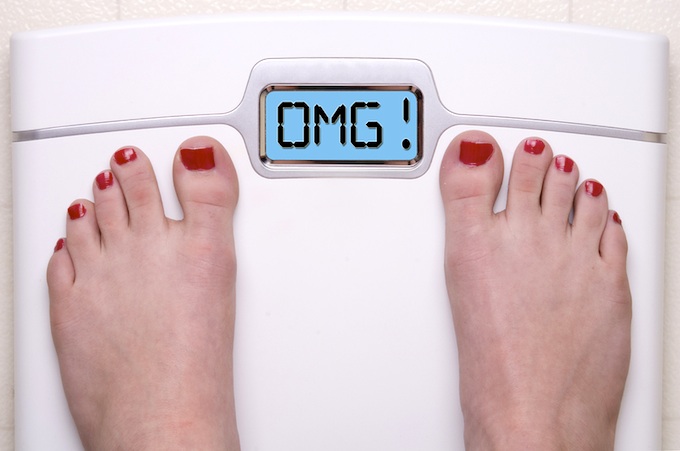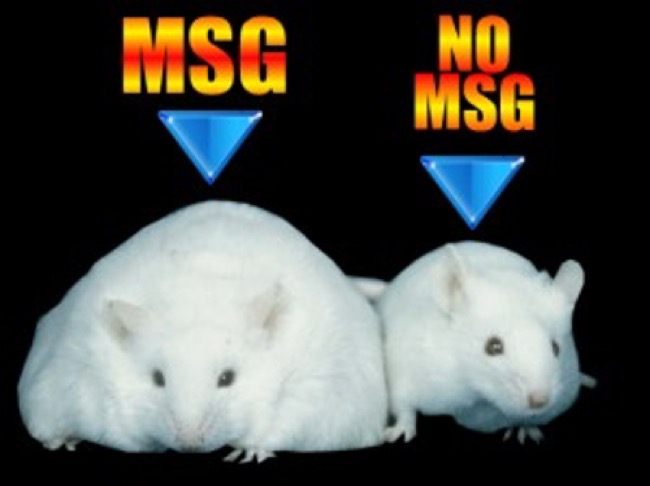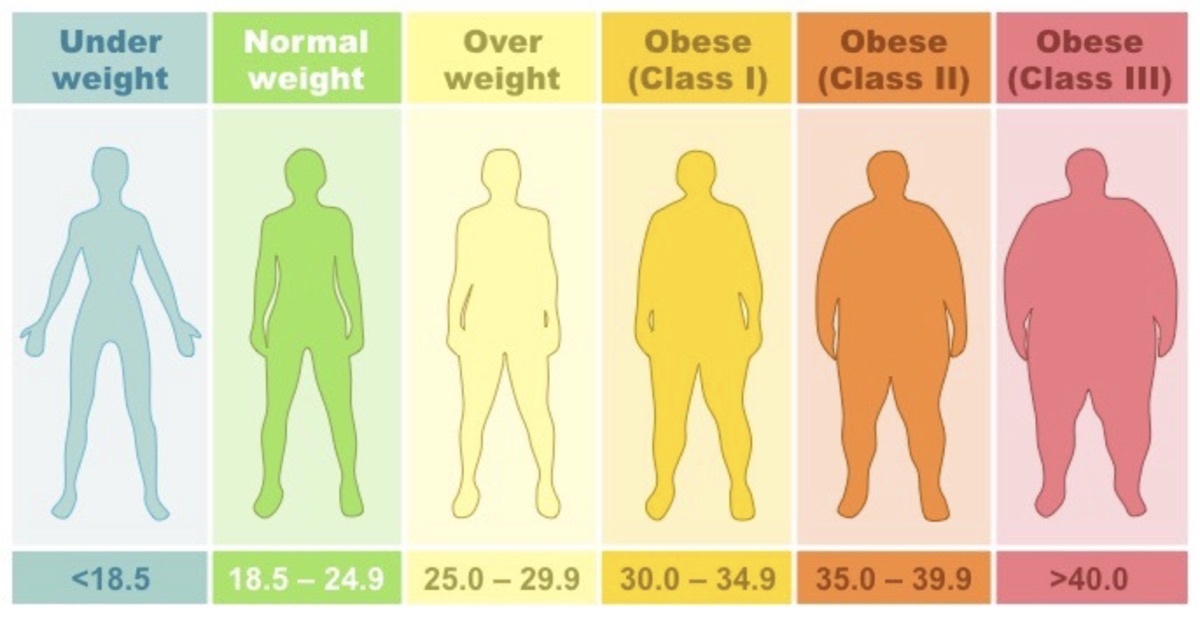Weight Loss and Obesity, and Why You May Have Difficulty Losing Weight

While weight loss is the #1 goal of our guests when they arrive, it is typically the last one on their list when they leave. What changes in their perspective, and what new do they learn about body weight?
Difference Between Weight Loss and Obesity
First of all, let’s discuss here the difference between weight loss and obesity. While they may sound like the same thing, they are not.
Obesity – Modern Pandemics

Obesity – is a major metabolic disorder, when body’s ability to regulate its own intake of nutrients and processing them out is disrupted. When a person suffers with obesity, it means that there are typically 50+ lbs overweight. Obesity increases risk of other degenerative diseases, including diabetes, mobility issues, high blood pressure and heart disease. In the modern world the rise of obesity all over the world became alarming.
Obesity Onset
Major systemic metabolism dysregulation typically starts in infancy, early childhood or during pregnancy, though it may happen later in life, too. After the metabolism has been majorly disrupted, the person may be struggling with extra weight in later years, because fat cells have memory. He/she typically goes on various diets, loses, then gains back.

One of the reasons why we touch on the topic of obesity here is that the fear of getting it or having it plays a major role in the body image and self-confidence of many people, especially women, even if they do not suffer from it. The contrasting images of thin bodies and obese bodies are flashing on the screens of TVs and computers, confusing them and making them compare their bodies to both, making a conclusion that a bigger body is worse than a smaller one.
Two Important Factors Contributing to Obesity

1. Toxic acids accumulated in the tissues.
Our world is full of chemicals, including colourings, artificial flavours, preservatives, and the like. When they enter our body, it will aim to keep them as far as possible from our vital organs and will store them in the extremities, lower back, neck, and fat cells.
For example, multiple researches extensively studied MSG-induced obesity in rats and reported a strong link between obesity and MSG (Monosodium Glutamate, the food enhancer that is present in many commercially-produced foods).
MSG, or monosodium glutamate, present in many modern foods, is a well-known excitotoxin (toxic to the brain) that can decrease brain size and damage eye cells. The majority of packaged foods contain MSG and other food additives, which may significantly contribute to the modern pandemics of obesity that we haven’t seen in centuries.
2. Function of the Hormonal System, particularly the Liver and Thyroid
If your liver is sluggish, your colon is not functioning properly, and your adrenal glands are exhausted, you’ll have a hard time trying to lose weight. If your hormonal system and liver health are negatively impacted by eating food full of chemicals, frequent overeating, severe or prolonged stress impacting your nervous system, chronic lack of oxygen and other things, it will create an imbalance in your body metabolism.
Note: Working with obesity requires a very different approach than weight loss, as mobility issues and degenerative diseases are often already present. Dietary changes will play a primary role here, and you will need to do moderate fitness activities suitable for your health level. And the most important aspect when dealing with obesity, is to work on the restoration of various body organs and systems, particularly the liver and hormonal system. Unless you get them to work effectively, it will be hard to stabilize and maintain a healthy weight.
If you are suffering from morbid (=severe) obesity, look into our Go-Deeper Programs.
Weight Loss

Extra weight is a slight to moderate deviation in weight, typically 10-50 lbs., compared to the weight considered by the modern society standards as “normal.” This standard does not represent a fixed value, but rather an average of the weight fluctuations observed in healthy individuals of different levels of fitness and height.
Some people refer to this “extra weight” zone as the “stubborn last pounds.” According to BMI tables, a person is considered overweight if their BMI is between 25 and 29.9. However, this number is not entirely accurate, as these calculations do not take into consideration the person’s natural body frame. Consequently, some individuals with a wide-boned and fit physique may be classified as overweight or obese in the I category. In contrast, underweight individuals may fall into the normal weight bracket, according to these tables. You can find out your body frame by measuring your wrist.
Unfortunately, because of these BMI tables and obsession with a specific type of slim figure, many people have extremely high expectations for their weight and disregard their individual body needs, including the stage of life they are in, the type of activity they do, the weight of their bones and muscles, season of the year, their emotional state and many others.
In modern society, body fat is often considered undesirable, and in many cases, the recommended fat-to-muscle ratios are significantly below what our bodies actually need. Women are often encouraged to have a lower fat percentage than is necessary for pregnancy and breastfeeding periods, and even for their own needs.
It is essential not to buy into the sport of losing weight for the sake of an imaginary, ideal slim figure. Weight loss is not a race in which you need to compete with others, or even yourself, when you were 20.
Weight Gain and Dehydration

Some Fresh Start guests are surprised that, instead of losing weight, they “plateau” or even gain a little, even though their belly may become flatter or inches may decrease. They panic and start wondering what’s “wrong” with them! What typically happens is that their body starts rehydrating because they eliminate coffee and other diuretics, and start resting more.” Rehydration is beneficial, and you should welcome it.
Besides gradual rehydration, your body’s fluid volume typically fluctuates throughout the day. You may “lose” and gain up to 1-2 lbs. a day. This is why you should not rely on the numbers on the scale.
Obsession with the “Ideal Size” at All Costs
Most women dream about shedding those unwanted pounds around hip, belly and chest areas. Some are super “lucky” to be the perfect 90-60-90, but even them, if one day after pregnancy and beginning of menopause not able to maintain it, go through an identity crisis. As a result, women start restricting calories and attempt dieting.
Trying to keep slim body at all costs has little to do with health, and often has quite an opposite effect: when you focus on weight loss and over exercise, you may become malnourished, develop various health issues and, worst of all, eating disorders, which are very difficult to treat.

Here are just a few negative side-effects of unhealthy weight loss:
Malnourishment and pregnancy issues: Some girls succeed in correcting their figure with dieting and pills, and a few can maintain the desired weight, but most often at a cost of malnourishment, resulting in vertigo, anemia, as well as difficulty getting pregnant and multiple miscarriages. Those side effects do not go away quickly and may persist for a very long time after you stop dieting, because once you damage the digestive system, metabolism, or circulatory system, they do not heal instantly.
High-Protein Diets: There are many variations of these, from Atkins to Paleo, but their basic principle is to consume a lot of meat and eliminate starches and sometimes all sweet foods. The way high-protein diets work is that they increase your metabolism (this is why you lose weight). However, the downside is that animal protein requires a very complex and prolonged process of digestion (it may take up to 3-4 days), and your kidneys, heart and other organs have to work very hard to eliminate by-products of the excessive protein digestion and putrefaction. Long-term high-protein diets are not safe and may lead to gallstones, gout, arthritis, as well as kidney and heart failure. Additionally, the elimination of all sweets and starches will contribute to a glucose deficiency. Glucose is the primary fuel for our brain and a crucial source of energy for all cells. If you completely exclude it from your diet, you will starve yourself. Such severe glucose starvation may lead to the extensive, almost uncontrollable sugar cravings, when you’ll be “shaking” seeing a chocolate bar and whenever you get to it, you’ll pig out and will have a hard time stopping. Glucose cannot be fully substituted by other sources of energy, such as protein or fats. You need to consume some glucose daily, as it is a vital nutrient your body needs.
If you deprive yourself of nutrients through dieting on a regular basis, the body will initiate a self-preservation mechanism. As it won’t be able to trust that you will reliably feed it. Through a strong craving, it will “force” you to eat compulsively, without being concerned about the nutrient content of your food. Or, on the contrary, you will start experiencing severe dizziness when you skip a meal. It is another protective mechanism, how the body may “motivate” you to get scared and eat.
If the patterns above repeat multiple times, you may end up with a pathological food addiction, when you will look for food to binge, just like an alcoholic for a bottle. You may walk for miles to get the food, or to jump into a cab to get and hide some in your room, even though just a few hours ago you committed to working on your food addiction and to staying in the temptation-free zone. To prevent eating disorders, such as anorexia and bulimia, you need to eat regularly and provide your body with all it needs! Eating disorders are not fun; they negatively impact your nervous system and mental health long-term. Yet they originate from skipping meals and ignoring your body’s needs.
Body and Good Weight Loss
You may really want to lose those pounds, and at the moment, it is your life’s goal. But think about it: what is more dangerous, to have some extra weight or to have your kidneys fail? What is worse, to occasionally overeat, or end up with a life-long eating disorder?
The best approach is to consider weight loss as a by-product of health, not the goal in itself.
Healthy weight loss means not only a decrease in pounds and inches, but also healthy blood sugar and blood pressure, flexible joints, calm emotions, and vibrant energy. You want to focus on your health, not on weight loss. It represents a paradigm shift in thinking, and it may take some time.
One of our coaches started her health journey by gaining 25 lbs. This is what her body and heart needed to be healthy. If, for a moment, you put weight loss on the back burner and ask, what your mind and soul need at the moment? Maybe you’ve been burning your night fuel for the last 5 years and are so exhausted that you run mostly on coffee? Maybe your energy tank is so low that you are totally out of the joy of life? Does your digestion need a tune-up, and your appetite is virtually non-existent (you stuff yourself without enjoyment)? Do you feel disconnected from your soul, just going through motions and eating mindlessly?
When you start taking care of yourself, you’ll understand that weight loss is secondary. When you have energy and joy, you will naturally have the desire to eat healthily, exercise more, and look after yourself more consistently. When you learn to manage your time, energy and finances, you will have a much more stable level of health and weight. It is not those folds on your lower back or belly that you want to worry about, but rather your ability to enjoy your life and find ways to create a fulfilling life path. Stop thinking about those 5-15+ extra pounds, and focus on what you need to gain in your life and your heart first.
How Can Fresh Start Help You Lose Weight Healthfully?

The goal of the Fresh Start Wellness program is to help you improve your body’s organ function, rejuvenate, and feel your best. We understand your desire to achieve an optimal body weight. Our program includes many components that may help you with it.
#1 Advanced whole body cleansing may be very beneficial in assisting you with lbs. loss and inches loss, with a great benefit to the entire body. Whole body cleansing helps eliminate toxins that contribute to excess weight. The toxins are stored in our fat cells, as well as in and around our organs.
#2 Healthy nutrition – regular healthy meals with a significant % of raw food and no meat or dairy are very nourishing and cleansing at the same time. They assist your body with weight loss. For the brave ones, we also offer a Fast Track – Juice Fasting Cleanse.
#3 Rest and Exercise – a combination of beautiful nature surroundings, fitness, yoga, rest periods and bodywork will help you recharge and restore your depleted energy resources.
Numerous factors contribute to weight loss, including your genetic makeup, real versus perceived body needs, hydration levels, quality of sleep, stress levels, liver and hormonal system health, and the state of your adrenal glands. On all of these and more will depend whether natural weight loss occurs during your program and how much.
We’ve seen many guests shed a significant amount of pounds and inches, and we’ve also seen those who were unable to release any weight during the program, but were able to do so after the program, as their metabolism and organs functioned much better after the cleansing. As long as they were not fixated on specific numbers and did not make them a priority, they got terrific results.
The reason we do not put a high emphasis on weight loss and do not use stimulants to achieve it at all costs is because it would be as if trying to beat the tired horse (your body) in attempts to make it run faster and more (give the remnants of its precious energy for weight loss). Most people live in a very high-stress environment, and what they need most is to unwind, not to “beat their body to pulp”. When your body is fatigued, the last thing it needs is to be run even harder and put on a treadmill. While boot camps have their place, the reality is that most people are on a treadmill of life every day and are dreaming of getting off it.
This is why we designed a program that allows you to focus on relaxation and rejuvenation, nourishing both your body and soul. Whether you lose a few lbs. or not, you want to treat your body with compassion and appreciation for what it can do for you at the moment. What matters is that your cells are re-nourished with good foods, your digestion works better, your sinuses can clear mucous, you can sleep better, and as a result, you feel stronger.



